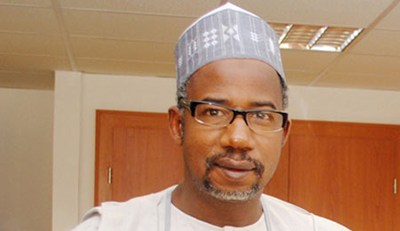The Central Bank of Nigeria (CBN) has said it will begin a comprehensive review of electronic payment guidelines in the country as Nigerians adapt to the hugely successful cashless policy of the apex bank.
The CBN said that the review would target the realisation of governments policy objectives in select areas of the economy.
Deputy Governor, Operations Directorate, CBN, Alhaji Suleiman Barau, in a keynote address titled: “Payments System Vision 2020 – Creating Enabling Environment through Regulatory Framework”, at the 2014 annual retreat of the Committee of the e-Banking Industry Heads (CeBIH) held at the weekend, .
said the proposed review of guidelines would be to build on the success recorded in the promotion of e-payment in the country by enhancing the adoption of electronic payments system in certain sectors of the economy.
Barau was represented by the Director, Banking and Payment System Department, Mr. Dipo Fatokun.
According to him, the central bank is poised to stimulate acceptance and usage of the payment system.
“Therefore, the Payment System Vision 2020 outlined a number of initiatives to catalyse the adoption of electronic payments system in certain sectors including, agriculture, transportation, hotels and entertainment, education, health, smart cities, bill payment and government flows.
“In this regard, the Bank has committed to reviewing the following regulations: mobile payment regulatory framework, the exposure draft of which was communicated to you about two weeks ago; guidelines on stored value/prepaid cards which was issued during the course of the year as guidelines for card issuance and usage in Nigeria; guidelines on ATM operations, among others”, he explained.
In his opening address, the Chairman of CeBIH and Head, Cards/e-Banking, Ecobank Nigeria, Mr. Tunde Kuponiyi noted that although the industry has recorded tremendous progress in terms of electronic payment system, the benefits were yet to reach every segment of the society.
He pointed out that the payment system “today is vibrant, robust and technologically superior with multiple payment instruments, multiple access points and delivery channels to choose from. However, the benefit of modern payment system is yet to fully percolate to all segments of the society.
“As a result, a substantial portion of the population is still outside the realm of the formal and modern payment system.”
Thus he argued that the stage was set for “all of us especially the banks and the Central Bank of Nigeria along with other stakeholders in the industry to collaborate with each other in a co-operative effort to expand the reach of banking sector and modern payment systems by making all efforts towards the realisation of the PSV 2020 20.”














